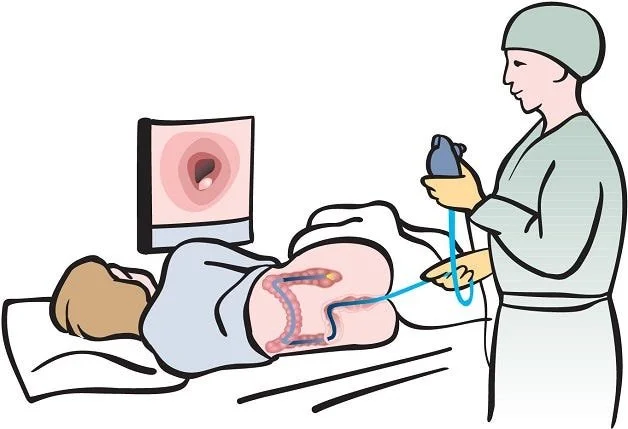Fertility services have undergone a remarkable evolution over the past few decades. For individuals and couples navigating the often deeply personal and emotional path of building a family, these innovations have opened possibilities that were once unimaginable. From improving success rates to expanding options for patients with diverse needs, technology has reshaped the landscape of fertility care.
Bridging the Gap Between Hope and Reality
Struggling with infertility can be an emotionally taxing experience. Technological breakthroughs have given millions of people around the world a renewed sense of hope. For many, fertility services, including Assisted Reproductive Technology (ART), provide solutions to overcome fertility challenges. ART includes widely recognized treatments like in vitro fertilization, as well as newer, cutting-edge techniques.

Improvements in Diagnostic Tools
For those experiencing difficulty conceiving, advancements in diagnostic technology can help determe the underlying causes of infertility. Non-invasive imaging techniques, such as 3D ultrasounds, and enhanced hormone analysis tests are now helping specialists gain a clearer understanding of patients’ individual circumstances. These tools enable personalized treatment plans tailored to specific conditions, resulting in more efficient and effective care.
Enhanced Effectiveness of IVF Procedures
IVF remains one of the most widely used fertility treatments, and technology has played a critical role in increasing its success rates. Laboratory technologies such as time-lapse imaging allow embryologists to track embryo development in real-time, identifying the most viable embryos for implantation with greater accuracy than ever before. Meanwhile, systems that automate environmental monitoring within embryology labs ensure optimal conditions for embryo development.
AI and Machine Learning in Fertility Services
Artificial intelligence (AI) is rapidly transforming how healthcare providers approach fertility services. By analyzing large datasets, AI algorithms can identify patterns in patient responses, predicting treatment outcomes with remarkable accuracy. Machine learning models help fertility specialists to predict ovarian reserve, egg quality, and other factors helpful to individualized treatment protocols.
Telemedicine and Accessibility
Technology is also removing logistical barriers that have historically complicated access to fertility services. Telemedicine has become a valuable tool for fertility clinics, allowing patients to consult with specialists remotely. This is especially beneficial for individuals living in areas who may find it difficult to access in-person care.
From initial consultations to routine follow-ups, telemedicine enhances convenience without sacrificing the quality of care. By leveraging these tools, providers can build more consistent communication with patients throughout their fertility journeys.
Wearable Technology and Fertility Tracking
For those trying to conceive naturally, wearable devices and apps have become indispensable tools in monitoring reproductive health. Fertility trackers equipped with advanced sensors can measure basal body temperature, heart rate, and hormonal fluctuations with precision. These insights empower users to better understand their menstrual cycles, ovulation patterns, and overall reproductive wellness.
Sustainability and Ethical Considerations
Another significant advantage of technology-driven fertility services is the emphasis on ethical and sustainable practices. By advancing treatment safety, reducing waste in fertility labs, and prioritizing non-invasive diagnostics, healthcare providers are fostering an environment of responsible care. Additionally, programs utilizing AI and predictive analytics help avoid unnecessary treatments, ensuring patients receive only what is genuinely needed to meet their goals.
Take a Step Toward the Future of Fertility Care
The role of technology in advancing fertility services is undeniably profound. By enhancing diagnosis, improving success rates, and making treatments more accessible, these innovations are bringing the dream of parenthood within reach for countless individuals and families. If you are experiencing fertility challenges, these innovations and treatments may be something to consider. Talk with a fertility specialist for more information and an individualized plan.
-
Common Types of Sports Injuries and How to Prevent Them
Staying active supports strength, balance, and mood, yet sports injuries interrupt training and daily life. These injuries range from minor tissue irritation to ligament tears. They arise from overuse, poor mechanics, sudden load, or inadequate recovery. Here are some typical problems and practical steps to lower risk: Sprains & Strains Sprains affect ligaments, while strains […]
-
How To Prepare for Your First OBGYN Appointment
An OBGYN specializes in women’s reproductive health, providing care that spans from routine checkups to pregnancy and menopause management. Preparing for your first OBGYN appointment can help you feel more comfortable, make sure your concerns are addressed, and make the most of your visit. Here’s how to prepare for your first OBGYN appointment: Gather Medical […]
-
How To Treat ADHD
Attention-deficit/hyperactivity disorder (ADHD) affects focus, impulse control, and activity levels. Symptoms often include distractibility, restlessness, and trouble organizing tasks. Diagnosis involves a clinical history, symptom checklists, and input from family or teachers. Treatment targets daily function and safety while addressing co-occurring issues such as anxiety or learning differences. No single pathway fits everyone, so approaches […]
-
What To Expect During Your Colonoscopy Procedure
A colonoscopy is a medical procedure used to examine the inner lining of the large intestine and rectum. It involves the use of a flexible tube with a camera, which allows direct visualization of the colon to identify abnormalities such as polyps, inflammation, or lesions. This procedure is regularly performed for screening, surveillance, and diagnostic […]
-
How Pacemakers Help Manage Arrhythmias and Improve Quality of Life
The human heart depends on precise electrical signals to maintain its rhythm. When those signals become irregular or unreliable, the result is often a condition known as arrhythmia. Left unmanaged, arrhythmias can cause uncomfortable symptoms and potentially disrupt daily activities. Pacemakers offer a reliable solution to regulating heart rhythms, providing patients with a path to […]
-
How To Choose the Right Psychiatrist for Your Needs
A psychiatrist is a medical doctor who specializes in diagnosing and treating mental health conditions. Unlike other mental health professionals, psychiatrists can prescribe medications in addition to offering therapy. Their training equips them to handle complex or overlapping conditions such as depression, anxiety, bipolar disorder, and schizophrenia. Finding the right psychiatrist often starts with identifying […]






Leave a Reply